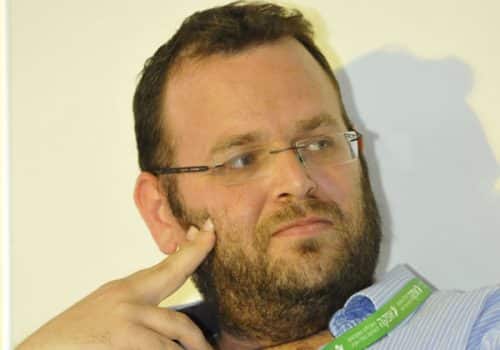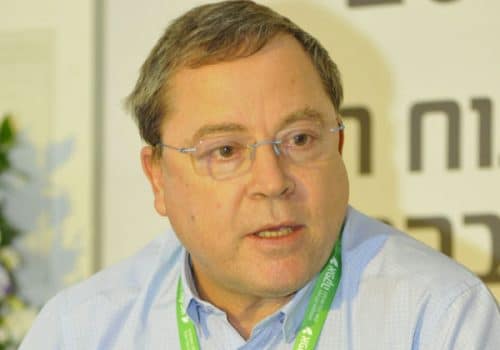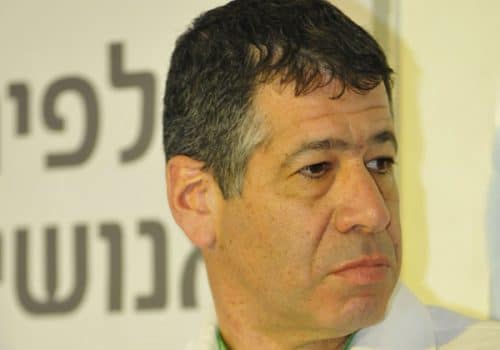Some of the participants in the Afka engineering conference claimed that the situation is bad ● Others think this is an exaggeration ● Shlomo Pashkos, the referent of the high-tech field at the Ministry of Finance: "Not every position in R&D needs the top of the Technion graduates"

"Not every position needs the top of the Technion graduates". This is what Shlomo Pashkos, the coordinator of higher education at the Ministry of Finance, said during a panel held as part of the first Afka conference.
According to him, "Israel has a great potential that is not realized. They claim that there is a shortage of 2,000 engineers a year - the gap between the demand and what the universities spend. I agree that the more engineers the better. We are still far from the optimum point. This is the type of problem that does not have a silver bullet, but requires the partnership of all parties to improve the situation. Already today, we see a change within the education system, but the mobilization of the higher education system is also required."
Pashkos explained that "in recent years we have emphasized increasing the number of engineers. The big lack is mainly in the upper end of the talents. As long as the industry in Israel continues to look only for the top-talent from the Technion, there is a limit to the ability and the IQ level. The industry needs to understand that not every person under the R&D divisions has to be the best engineer".
"Another solution is to bring in engineers from abroad," Pashkos said. "Blocking high-level employees is not good. The industry needs internationalization, we need people who will transfer the knowledge." As part of his position at the Ministry of Finance, he said that "in the last three years, when the magnitude of the problem became clear, I did not know of a potentially valuable program in the field that ran into a funding problem."

Prof. Yossi Rosenox, Dean of the Faculty of Engineering at Tel Aviv University says that he is pessimistic. "We at the Faculty of Engineering in Tel Aviv do not want to grow and do not want to take in more engineers because the level of students that come to us from high school is decreasing year by year. The main problem is that they learn in a different way, they face less problems, they are taught to pass the matriculation with good grades. In the first year, the top of the cut come to us and the Technion, and there is still a high failure rate of 50%-40% in math and physics. And among those accepted, there is a large dropout."
"The solution is to change the teaching method in schools," said Rosenox. "The campaign of five units is good, but I would change the quality of the teachers. You can make statements about doubling the number of graduates, but there are not enough teachers, especially good teachers. Our students don't even know how to read the questions. Starting next year, we will extend the duration of the studies and add preparatory summer courses in mathematics and physics."
Zavi Bergman, chairman of Galil Software, a company that mainly employs minority engineers, thinks that the problem is not serious. "Cries about a lack of engineers are a bit exaggerated. Those who were here in the 90s saw the shortage for what it is. Today there are enough - there are more than 5,000 engineers sitting at home. The problem is more about quality - the transition from education for excellence to education in quantities."

Ofer Rimon, head of the Science and Technology Administration at the Ministry of Education, refuted the accusations made by the other participants in the panel and said that "people who were disconnected from the education system, see what is happening with their two private children at home and from there make a projection on the education system. Today there is a young generation, Generation Z with amazing abilities. Children who have grown up in the world of the Internet, play cooperative games online, are on Skype, know that they can learn online. When they want to know, for example, a programming language, they open YouTube or take a course on Coursera."
"Today we are in an era where the Ministry of Education needs to develop the ability to study independently and this is mainly what is sought in high-tech," Rimon said. "When you connect children from a young age to technological problems, something wonderful happens. There are children who stay to sleep in schools with sleeping bags to solve a problem for a robotics competition."
"At the same time, we started a big project in cooperation with the Association of Manufacturers, to combine the workplaces with the technological trends. Today there are 230 classes in technological education and our intention is to double them. Once these classes were intended for at-risk youth who studied automotive majors, but this triangle of industry-student-and teacher is also suitable in the cyber field, on which we work for example with Check Point.
"In the previous year, there was a huge increase in the number of students graduating with five math units, five physics units, and 10 technology units. We are still in the process.
The article was first published on the People and Computers website

4 תגובות
"Bringing engineers from abroad" is simply an insult to those who say such things. I have been looking for a job for two years as a Technion graduate with a pretty good grade. I compromised on a lot of jobs, only the main thing would be engineering and I still haven't found one, because the companies want experience. And you say "bring in engineers" while me and my friends who have been working hard for four or five years can't find a job??? Where did we go? That the companies will stop asking and start accepting even without experience and then there will be no shortage of engineers. An idiotic solution to bring from abroad.
The non-serious treatment of those responsible for the issue - no wonder there is a problem.
"Bringing engineers from abroad" - in my eyes, bankruptcy of our basic values, also the problem from the beginning is that there are not enough *Israeli* engineers, so how does this solve it?
"Not every person has to be the best engineer" - striving for mediocrity. This rule can also be applied to government offices... the intention should be to encourage those who are suitable to go to high-tech, in my impression this is not exactly the case. Many young people do not see the benefit of high-tech at all.
"When you connect children from a young age to technological problems, something wonderful happens" - definitely agree, but it almost never happens. For example, the example of robotics is a one-off thing that happens in very few schools and is not regulated. I know the subject from personal experience. To open a robotics group you have to move mountains, and usually at the initiative of parents and not at the initiative of the system.
Monthly salary for two months off.
The required arrangement: be taller, and have fewer days off. Parents will have to spend less money on private lessons.
Simple calculation: 150 NIS for a private lesson per week multiplied by 4.5 weeks per month = 675 NIS per child. 3 children in an average family. We will add that there are so-called private schools that take 1,200 NIS per month.
Why in Germany and Italy academic education is free. I can guess in the Nordic countries as well. These are thriving economies.
Europe owes Germany 4000 billion euros. They are no less prosperous because the state invests in education.
Why 150 days off a year? The good and the strong tried to deal with the problem and each time the teachers came and objected.
Both the teachers are paid low and the parents spend about NIS 20,000 per two months for 3 children per family on summer camp solutions so that children do not wander around unsupervised, bored and sleeping all morning.
Maybe a month a year, but 150 days? Why Mimona after the Passover holiday. Actually, from Passover or from June to the end of September, a state of full or half freedom.